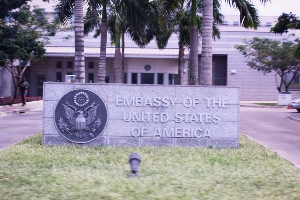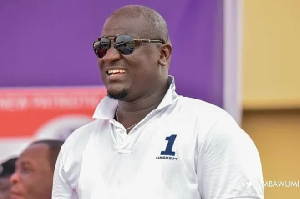The trial of Tsatsu Tsikata, former Chief Executive of the Ghana National Petroleum Corporation (GNPC) took a dramatic turn on Wednesday when his counsel prayed an Accra Fast Track Court hearing the case to acquit and discharge him.
At the court's last sitting last week, the prosecution closed its case for Tsikata to open his defence today. But just before Tsikata could be invited to put up his defence, his counsel rose to his feet and told the court that he was making a "submission of no case" against his client.
Tsikata is standing trial for wilfully causing financial loss to the State, and deliberately misapplying public property. He is alleged to have caused the loss of more than 2.3bn cedis to the State in a transaction in which he committed GNPC to guarantee a loan facility from a French Development Aid Agency for Valley Farms, a private limited liability company.
The accused has pleaded not guilty and is on a 700m cedis bail in his own recognisance. Making his submissions, Professor Emmanuel Victor Oware Dankwa, counsel for Tsikata told the court that since the prosecution had failed to establish a "prima facie" case against his client, he should be freed.
Prof Dankwa submitted that looking at the evidence adduced by the prosecution, one was left with the conclusion that his client be acquitted and discharged. Counsel further submitted that his client could not be held guilty of the charges preferred against him, since they were based on Acts which at the time, did not constitute offence.
Prof Dankwa submitted that all the alleged charges of his client were committed long before the amendment of the Criminal Code, which came into force in July 1993. Counsel argued further that whereas his client authorised GNPC's investment in Valley Farms in June 1990, he signed the guarantee agreement on 11 March the following year.
Prof Dankwa submitted that all the alleged charges preferred against his client were committed long before the amendment of the Criminal Code, which came into force in July 1993.
"It was unconstitutional for a charge to be preferred against my client long before the Act was enforced", counsel pointed out. It was his humble submission, therefore, that his client be acquitted and discharged, since he could not be charged with acts which did not constitute offence at the time they were committed.
Counsel told the court that GNPC itself benefited directly from the guarantee agreement, which his client signed on its behalf with officials of Caisse Francaise Development.
Counsel submitted that none of the six prosecution witnesses led evidence to show the wilful action or omission of his client through which the State incurred a financial loss. Accordingly, he prayed the court to free his client.
At this juncture, Mrs Justice Henrietta Abban, Appeal Court Judge with an additional responsibility on the case as a High Court Judge stopped proceedings and adjourned the case to Monday, 27 January.
This is to enable counsel to conclude his submissions, to be followed by a reply by the Director of Public Prosecutions (DPP), after which the Mrs Justice Abban would give her ruling on the matter.












